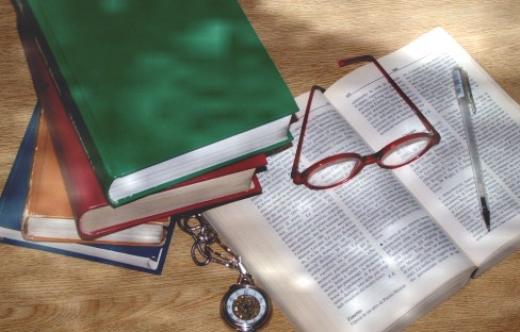
‘A rag-bag of pointless information’?: The Value of Teaching History
In Graham Swift's Waterland, the narrator Tom Crick is a history teacher sacked by the headmaster for a misdemeanour. The official reason given for his 'early retirement' is that the head, Lewis, has decided to axe history from the syllabus:
'It just so happens, Tom, that I agree with the powers that be. Equipping for the real world. It just so happens that I think that's what we're here for ... Send just one of these kids out into the world with a sense of his or her usefulness, with an ability to apply, with practical knowledge and not a rag-bag of pointless information'.
Clearly the headmaster in Swift’s book is wrong! History is far from a ‘rag-bag of pointless information’. It is neither a ‘rag-bag’ nor is it ‘pointless’ and it is essential that History is made a core subject for all Junior Cycle students.
History must be an intrinsic part of the school syllabus. If it is not then how do children and young teenagers learn about the past? More importantly how do they learn to critically assess what they are being told about the past (or indeed the present)?
We live in a ‘post-truth’ era. Recently, Vittorio Bufacchi, lecturer in Philosophy in UCC gave a very succinct definition of Post-Truth on RTÉ Radio: it is a world ‘where subjective opinion has the same authority as objective fact’. Or indeed where someone’s gut feeling is as important or valid as that of someone with expertise in the field. It’s what I call knowledge by osmosis – where being born in a place, having a certain accent, or being related to someone confers an authority that is not backed up by any research, reading or understanding. My own grandfather used to argue that his being from Enniscorthy and knowing the lyrics to ‘Boulavogue’ meant that he understood the 1798 Rebellion better than I did.
The past informs the present. Without an understanding of the past we are in danger of stumbling blindly through the present and inflicting great damage on the future. We live in a world where lies have become commonplace and are often accepted as fact, where ‘fake news’ and disinformation (deliberate lies) are now a part of everyday life. Michiko Kakutani, writing about the US recently, put it succinctly: ‘Trump's ridiculousness, his narcissistic ability to make everything about himself, the outrageousness of his lies, and the profundity of his ignorance can easily distract attention from the more lasting implications of his story: ...how easily Russian disinformation took root in a culture where the teaching of history and civics had seriously atrophied.'
The democratic world in which we live is under threat. As living memory of the horrors of the Second World War (and even the Cold War) disappears it is more and more important for people to understand that democracy is precious and that vigilance is required to protect it. Democracy is not the norm. We may think it is, but any understanding of the past shows that it is replete with dictators and tyrants. Without an understanding of the past – of the slow and painful emergence of democracy, both in Ireland and abroad, and of the many and varied threats it has faced – the next generation of Irish citizens will be ill-equipped to defend it.
History teaches us how to critically evaluate sources, to treat hearsay with scepticism, to demand rigour from those with power and influence. An understanding of the past ensures that we do not accept the present with passivity. We should not be holding up a mirror to the past, but a broken mirror in which we see many reflections. There are many truths and many lived experiences. We should be teaching a ‘plural history’ – where many different perspectives are valid (but where there are also facts). As President Higgins recently observed at the Festival of History: ‘We cannot, nor should we, demand that another adhere to our own interpretation of our past. We can, however, and we must, require of ourselves and others, a transparency of purpose and honesty of intent, a serious engagement with historical scholarship and, above all, respect for the sincerely-held beliefs and ideas of others, including those who went before.’
*****
History has never been a core subject for all schools. There are 715 secondary schools in Ireland. Until last year 374 were obliged to teach History as a core subject. The remaining 341, made up of ETB (Education and Training Board) schools and Community and Comprehensive schools, were not obliged to teach History as a core subject, though most of them did. In fact, though only 52.3% of schools were obliged to teach History as a core subject, 90% of Junior Certificate students did take history as one of their exam subjects. This is heartening and perhaps students will continue to defy the implicit devaluation of the subject (though the figure for 2018 already shows a small decline). But we cannot assume that significant numbers will continue to take History. We cannot be complacent. It has been claimed that all students who want to take History will be able to do so. This isn’t true. Some schools will allow for open choice, but others will put subjects in blocks, allowing students to choose only one subject from each block. If History is in a group with a high-demand subject such as Business or Science, then numbers are likely to fall. In England, where History is no longer a core subject, only 44% of students took GSCE History (the equivalent of the Junior Cycle) in 2016. Also, while there are history teachers in all schools now (and many schools have decided internally to keep history compulsory) with retirements or demands on other subjects this may change. All of this is moot in some ways as we should not be attempting to restore the status quo. It should not be the case that 52.3% of post-primary schools are guaranteed to be taught History as part of the Junior Cycle; History should be a core subject for all post-primary schools.
History should be an integral part of every students’ education, at the very least until they have completed their Junior Cycle. Publicly, successive governments have been actively promoting our past, privately they been taking history off the curriculum. Historians, librarians, teachers, archivists and many others did sterling work (and continue to do so) during the Decade of Centenaries. ‘Reflecting the Rising’ which took place on Easter Monday 2016 saw over 750,000 people roam all over Dublin city, guided to talks, performances and exhibitions by an army of volunteers, many wearing period costume. There are excellent initiatives such as the Historians in Residence scheme run by Dublin City Council. Clearly there is enormous public interest in history, but it’s not enough to get occasional snapshots of our past; we need to provide all our children with strong foundations so that they understand the complexity of the past and how Ireland interacts and engages with other nations.
Lurking behind the policy of removing History as core is the complacent assumption that students can get all the history they need from heritage sites and museums. Museums are wonderful spaces for education, offering students a tangible sense of the past, but they can only supplement the teaching of history, not replace it. They should not have that responsibility either.
Across the country there are more and more museums and heritage centres and it’s vital for their survival that there is a local base of people using them. When History was being taken off the core syllabus I doubt that the knock-on effects were considered at all. Perhaps the government is expecting a boom to the heritage industry as parents rush out to educate their children themselves. If so, they’re sadly mistaken. Taking children to museums costs time and money. Only some parents will be able to do so, and, encouraged by the government’s own indifference, many will not see the need. Many museums are dependent on school visits for vital income and are likely to suffer, not benefit, from the removal of history from the syllabus.
For generations History has been burdened by the perception that it is a ‘difficult’ subject, that it is ‘hard’ with a lot of reading and memorising of names and dates. We need to tackle this misapprehension. That isn’t how it is being taught today. History is about developing arguments, finding source material and making sense of the past using all sorts of problem-solving techniques. Essentially it’s cold case detective work! And given the popularity of historical dramas, documentaries, films, there is clearly public demand. But we can’t rely on TV and film to fill education gaps, not least because they rely heavily on a handful of familiar themes – crime, murder, royalty and war.
History is about understanding what happened in the past as a way of making sense of the present and potentially making a difference to the future. And the teaching of history has never been more exciting. The digitisation of primary sources enables every student to make discoveries for themselves. Investigating the past and uncovering our history is an adventure that all students should have the chance to be part of. History education in schools provides the tools to allow students critically evaluate the past. To quote President Higgins: ‘Our history is the inheritance of all our people… A knowledge and understanding of history is intrinsic to our shared citizenship. To be without such knowledge is to be permanently burdened with a lack of perspective, empathy and wisdom.’
Joe McHugh, the Minister for Education and Skills, has stated in the Dáil that he believes it is ‘vital that young people learn from the past in order that they can plan for the future and ‘the time has come for History to take its rightful place’. He asked the NCCA (National Council for Curriculum and Assessment) to review the status of History as a Junior Cycle subject. A draft report leaked last week suggests that the NCCA will not recommend overturning the decision which removed History as core. The NCCA is an advisory board and, as a recent editorial in the Sunday Business Post put it, ‘its recommendation is neither binding nor infallible’. The Minister has the power to make History a core subject for all post-primary schools. He claims to want to do so. He should do so.


